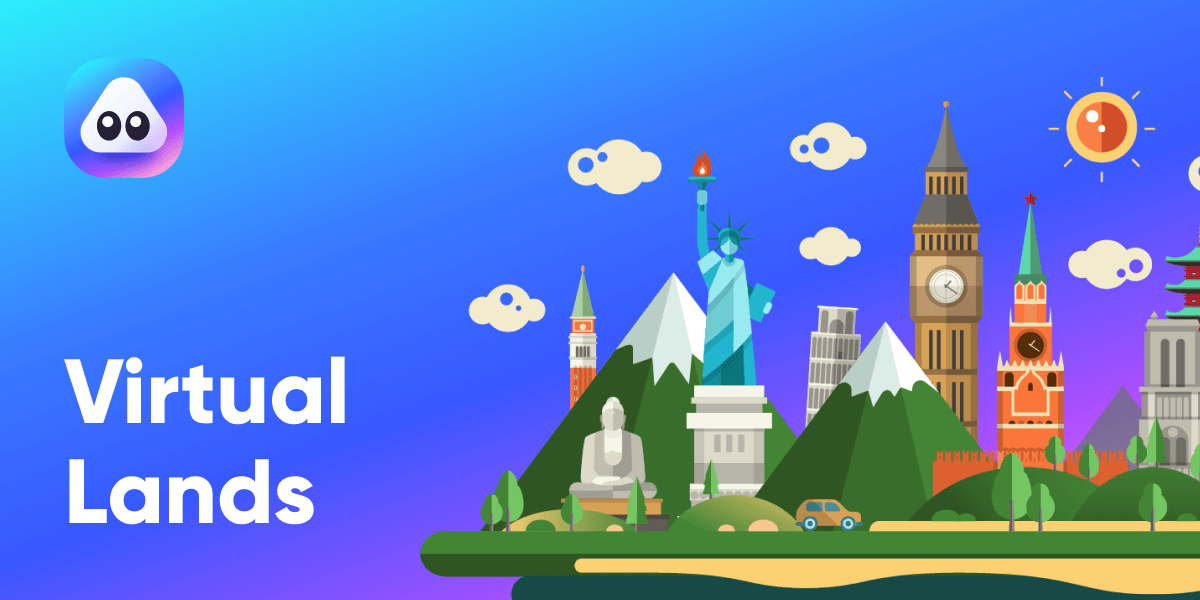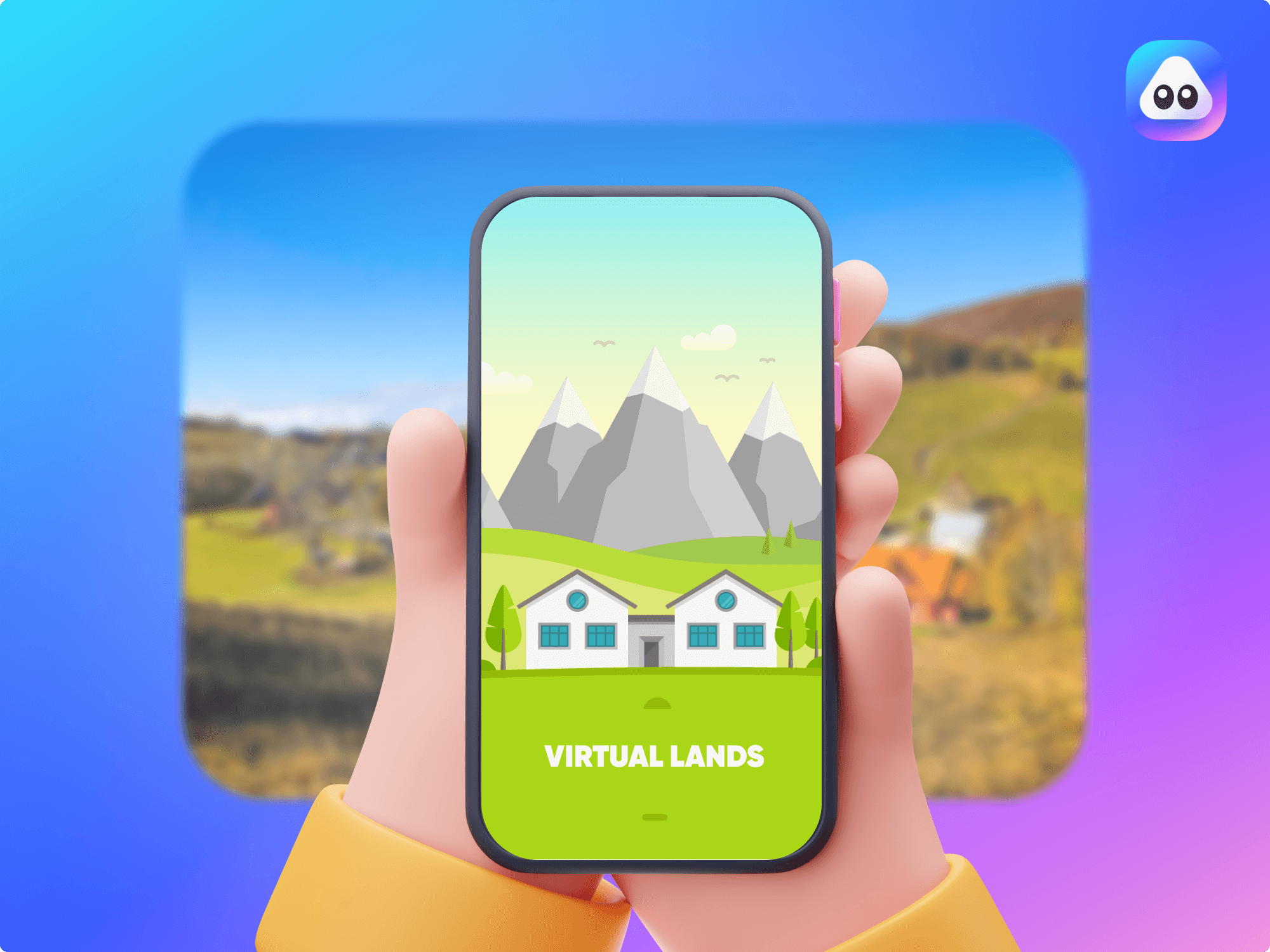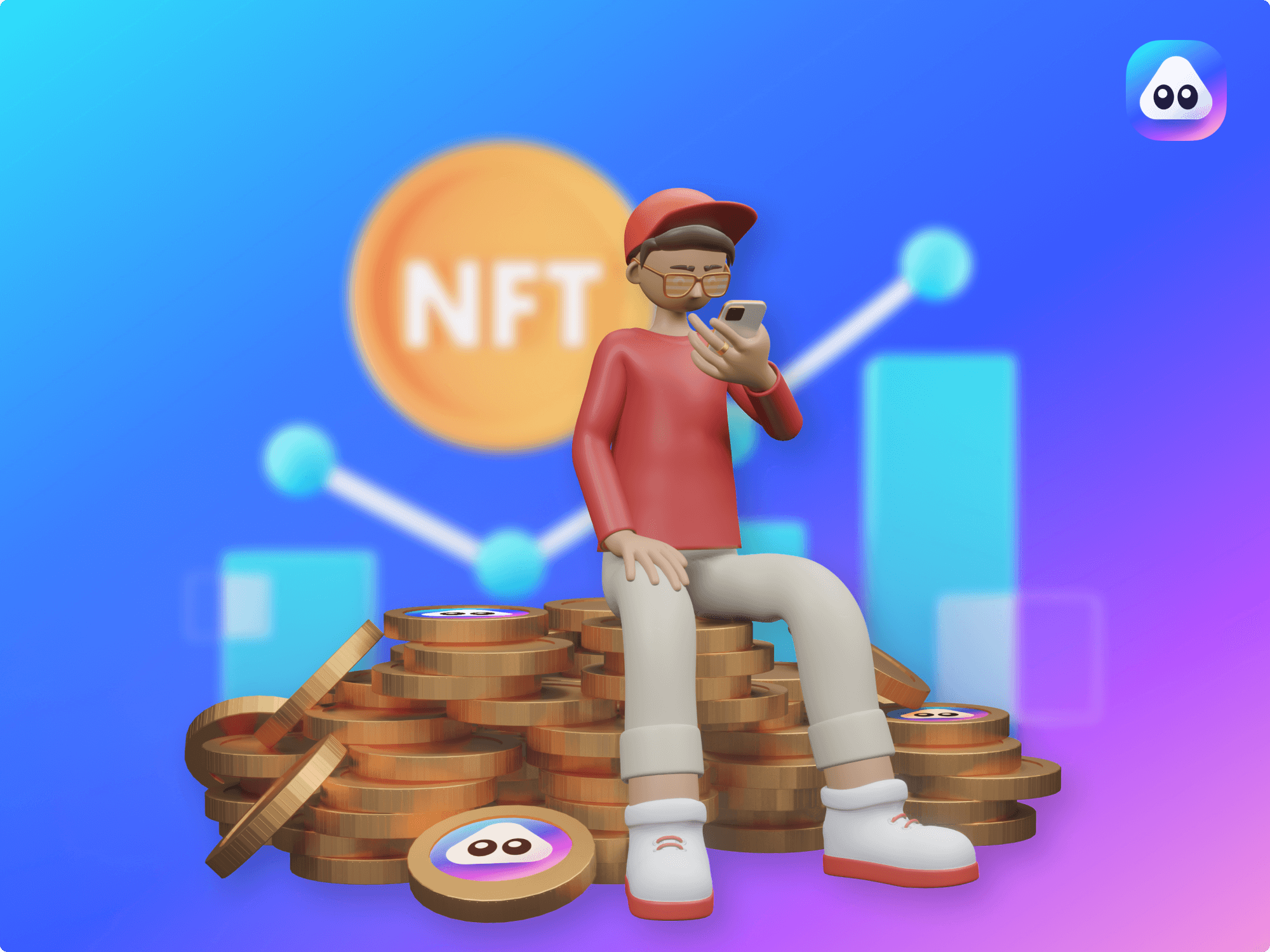What are Virtual Lands
With NFTs enabling ownership of virtual land, users can create and trade digital assets, play games, and exhibit NFTs in galleries. Learn more with us
December 23, 2021

Have you heard terms like "virtual lands," "virtual worlds" or "virtual real estate"? These environments have gained popularity since the pandemic prompted people to spend more time online, but if this is the first time you've heard them, you may be wondering what they really mean. Let’s explore these concepts together.
Virtual Lands vs. Real Estates

Real estate refers to property consisting of land and the buildings on it, as well as its natural resources such as water and trees. In other words, real estate is a term that implies physical, tangible property. On the other hand, Virtual Land is intangible and only exists in the virtual world. Just like physical land, it’s also sold in the form of plots and can be purchased using the cryptocurrency of the land in question, like MANA in Decentraland. NFT categories, such as art, collectibles, and domain names, are all leveraged in the metaverse, with ecosystems built and maintained by the crypto community. So the only essential difference is the tangibility of the two worlds. However, this doesn't mean that you can't enjoy the virtual world or that it has no value. On the contrary, nowadays, with the invention of NFTs, the game has changed dramatically, allowing for more secure and future-proof purchases. Virtual lands are becoming more valuable and cryptocurrency enthusiasts are paying real money to acquire them. NFT technology is then used to facilitate the ownership, buying, and selling of these land parcels.
Till date, there are several virtual worlds (such as Decentraland, Sandbox, and Earth2) that allow the purchase of virtual land. The most popular among such worlds is Decentraland. It’s a specific type of metaverse that uses blockchain technology where land and other items are sold in the form of Non-Fungible Tokens (NFTs), which in turn represent ownership of a digital asset in the metaverse (a bunch of interconnected virtual worlds). The average price of land in Decentraland currently stands at around $195,779.94.
Investing in Virtual Worlds
As our lives become increasingly digital, the prospect of owning a piece of digital land no longer seems far-fetched. Thanks to Non-Fungible Tokens (NFTs), investors can gain a sense of ownership over intangible assets like LAND. Although, when it comes to using virtual land, many people are confused and the question is usually whether it is worth it or not. Well, the answer is YES for the following reasons:
- It's easier than buying real land: Virtual real estate doesn't have the major pain points associated with real-world sales, such as the huge amount of paperwork that needs to be done, land maintenance, and taxes that need to be paid. The implementation of blockchain also makes land purchases more secure and traceable.
- Exponential returns: Virtual land is able to offer exceptional returns due to its alignment with the rapidly expanding crypto-investment universe. The ease with which land can be flipped (just like one does with real land). In other words, investors buy virtual land that is still relatively low in price, and then take a wait-and-see approach until the price of that land rises to the point where they want to resell it. Find out more about How to Flip NFTs for Profit here.
- New asset class: Everyone knows that land is an asset that never depreciates and is one of the most popular asset classes. This is now the case in the virtual world. Virtual real estate has become a legitimate asset class. Its value is increasing exponentially, making it worthy of interest to investors. It also seems likely to become a viable store of wealth, almost like real-world art and real estate.
- Regular income, like in the physical world: Any owner of virtual land can earn a regular income from it, just as we do in the physical world. An investor can build a virtual shopping mall using NFT on his land and rent it to any owner for a monthly income.
Furthermore, the world of virtual reality allows users to be not only consumers but also creators. Users can produce their own unique creations in these virtual worlds and sell them. Virtual land plots can be bought and sold on NFT marketplaces like OpenSea. Simply register an account and link a digital wallet such as Trust Wallet or MetaMask.
Dive into the Virtual Worlds with NFTs

As the virtual world experience is taking hold, AirNFTs is already allowing you to immerse yourself in that experience, to create and monetize your NFTs as pieces of virtual land.
Conclusion
While the dream of owning land has always been firmly rooted in the real world, things have changed in the 21st century, where many people have purchased parcels of virtual real estate in the metaverse. If our future is going to be virtual, you’ll want to get in quick.
Start earning with virtual lands now!
